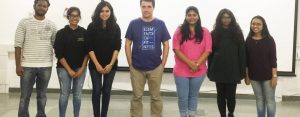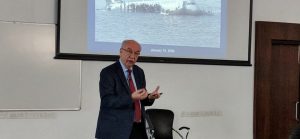Centre for Cognitive Science hosted the second edition of CogniTalks on November 16. Like last year, CogniTalks 2018 had an eclectic group of experts to engage in a series of talks about human cognition.
Understanding human cognition is increasingly becoming vital in modern science, technology, art and design. New technologies are beginning to incorporate principles of how we perceive the world, learn and remember information, make decisions and interact with the environment.
This innovative event’s aim was to bring together experts from different fields to interact and discuss how humans think and act. Designers, architects and philosophers discussed the finer points of human behaviour. Students and academics from NID, NIFT, IIM, DAIICT and other neighbouring institutes were also invited to this event.
Watch Prof Venkatesh Rajamanickam from IDC School of Design, IIT Bombay talk on Understanding Human Cognition in Data Visualisation
Watch Prof Neelkanth Hariprasad Chhaya from Srishti Institute of Art, Design and Technology, Bangalore talk on What Does Architecture Do To Us?
Watch Prof Prof. Bhuvaneshwari S from School of Linguistics and Literary Studies, Kerala talk on Theories of Space in Indian Philosophy and Aesthetics
Watch Sonia Mehra Chawla British Council India & Charles Wallace Scholar/Fellow, from Schloss Solitude, Germany talk on Material and discursive possibilities in the contemporary art framing of Art & Science; choosing focus areas.


